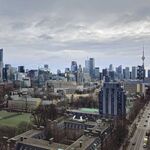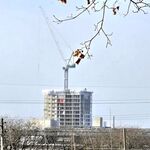Of course, if things were done properly, the cost of the Traffic Agents would be removed from the Police budget since the City has to hire them (and it's a great idea) because the police refuse to enforce traffic rules.
Not surprised to see Bradford is whining again, he really has become a rather annoying complainer' - too bad as he did seem quite sensible when he first ran for office.
From CP24:
https://www.cp24.com/politics/toron...t-will-include-money-for-more-traffic-agents/
Mayor Olivia Chow is vowing to bolster the compliment of traffic agents in the city to 100 this year in order to help ease gridlock at some of the city’s busiest intersections.
“These traffic agents will be moving traffic, getting Toronto moving, giving us time back with our families and loved ones,” Chow said at a downtown press conference. “They even keep us safe as they clear the roads for emergency crews.”
The city
deployed 14 traffic agents back in 2023, adding more later that year to help ease major congestion that was occurring along King Street.
Back in February the city said there were 27 traffic agents on the job and that they planned to bring that number up to 40 by March.
The city also released data showing that the agents had helped slash streetcar travel times along King Street by quickly dealing with situations where vehicles blocked intersections and other problems.
Director of Transportation Services Barabara Gray said Thursday that there are 48 agents in training now who will hopefully be deployed to city streets in the spring. She said there is also a “constant hiring process” to add additional traffic agents.
Adding the extra agents will costs about $3 million, Chow said, with the figure expected to be reflected in the proposed city budget which will be unveiled Monday.
However speaking with CTV News Toronto, Coun. Brad Bradford called the move a “Band-Aid solution.”
He said there’s still a lack of coordination for construction projects in Toronto and road occupancy permits are issued for far too long.
“Until the mayor wraps her arms around those major issues this is just a Band-Aid for a much bigger issue,” Bradford said.
However Gray said the city has found that having physical agents is key part of easing congestion.
“The automation is important, but boots on the ground is critical for dealing with the complex dynamic at an intersection where you’ve got lots of people trying to get through on cars, lots of people crossing, you’ve got transit that we really need to get through because it moves so many people, as well as cyclists,” she said. “So I think the boots on the ground is a great investment.”
She said Toronto police also provide additional resources at key points like the entrance to the Gardiner Expressway.
The traffic agent program was first piloted back in 2016 as a way to keep traffic moving while freeing up fully trained police officers to focus on other duties instead of directing traffic.




